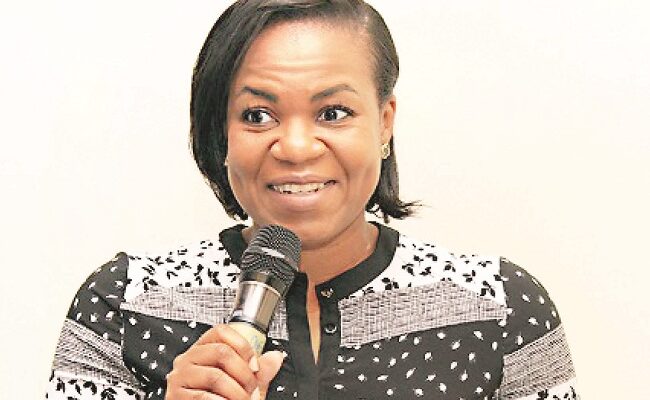
Money, they say, makes the world go round. The same can be said about money and climate action. Whether it is climate adaptation, mitigation, or loss and damage, it all comes down to the availability of climate finance—money—to make things happen! Little wonder establishing a loss and damage financing facility was a major bone of contention at the recent United Nations Climate Change Conference (COP27) in Egypt last year.
However, at COP27, several initiatives that were meant to yield climate finance were launched. One of which was the African Carbon Markets Initiative (ACMI).

Carbon markets and ACMI
It has been said that carbon markets provide a chance to raise billions of dollars for the continent’s climate finance needs while also increasing energy access, generating jobs, preserving biodiversity, and promoting climate action. But only a small portion of Africa’s potential for carbon credits is currently produced.
The ACMI was inaugurated at COP 27 in collaboration with The Global Energy Alliance for People and Planet (GEAPP), Sustainable Energy for All (SEforALL), and the UN Economic Commission for Africa.
It is led by a 13-member steering committee of African leaders, CEOs, and carbon credit experts with the aim of expanding Africa’s participation in voluntary carbon markets.
By 2030, Africa is expected to create 300 million credits yearly, according to an ambitious goal set forth by ACMI. Some 30 million jobs and $6 billion in new income would be supported by these credits. ACMI aims to produce over 1.5 billion credits annually in Africa by the year 2050, over $120 billion and supporting over 110 million jobs.
“The current scale of financing available for Africa’s energy transition is nowhere close to what is required. Achieving the Africa Carbon Markets Initiative targets will provide much-needed financing that will be transformative for the continent,” Damilola Ogunbiyi, the CEO of SEforALL and a member of the ACMI’s steering committee, said about ACMI’s ambition.
‘High-integrity credits’
Crucially, ACMI is committed to supporting high-integrity credits where an equitable and transparent distribution of revenue goes to communities. ACMI steering committee member and USAID Chief Climate Officer Gillian Caldwell noted, “The African voluntary carbon market will only succeed if people trust that African credits are driving real climate action and having a positive human impact. As the VCM scales in Africa, USAID and ACMI will ensure that it does so with integrity as a core pillar.” To stimulate the production of high-integrity credits, the ACMI is collaborating with global integrity initiatives like the Integrity Council for the Voluntary Carbon Market (IC-VCM) and the Voluntary Carbon Markets Integrity Initiative (VCMI), as well as other regional carbon market platforms.
Osinbajo on ACMI
ACMI released Africa Carbon Markets Initiative, Roadmap report: Harnessing carbon markets for Africa at the initiative’s COP 27 launch event.
The report identifies 13 action programmes to support the growth of voluntary carbon markets (VCMs) on the continent.
According to a statement from ACMI, although voluntary carbon markets are already growing quickly—retirements of African credits have grown by an average of 36 percent annually over the past five years—aggressive action will be required to maintain this level of growth over the coming decades.
African nations including Kenya, Malawi, Gabon, Nigeria and Togo shared their commitment to collaborating with ACMI to scale carbon credit production via voluntary carbon market activation plans.
According to the report commissioned by ACMI, these countries have a maximum potential to generate ~300+ MTCO2e. The report adds that capturing 25 per cent of this potential, ~75 MtCO2e would be double the total credits issued across the entire continent in 2021.
Commenting on the announcement, Vice President of Nigeria and ACMI steering committee member, Yemi Osinbajo said, “Carbon markets can deliver tremendous benefits for Nigeria and for Africa—creating jobs, driving green investment, and reducing emissions.
Nigeria is putting the groundwork in place today so that in subsequent years, carbon credits become a major industry that will benefit our people.”
What environmental activists say about ACMI
In their reactions to the coming of ACMI, these environmental activists from different African countries had this to say:
Nnimmo Bassey, Director, Health of Mother Earth Foundation, said: “This initiative is a disincentive to progress in cutting down on emissions. Carbon trade is simply business at the expense of the planet. Unfortunately, the fossil fuel industry backed by Global North governments have found willing partners in African leaders who have shockingly decided to close their ears to the cries of their people carrying the biggest burdens of the climate crisis”
Akinbode Oluwafemi, Executive Director of Corporate Accountability and Public Participation Africa (CAPPA) said: “It is disheartening that at a time when the crucial discussion is about voluntarily cutting down on emissions African leaders are again embracing a false solution that licences and encourages pollution to continue.”
Ndivile Mokohena, Gender CC, South Africa said: “As African leaders drift in every wrong direction at the whim of the fossil fuel industry and their enablers, people on the continent continue to suffer. Leaving the fossils in the ground is the faultless path that the world continues to ignore. This carbon market initiative is disappointing.”
Kwami Kpondzo, Friends of the Earth Togo said: “It would seem African leaders are determined not to learn from their mistakes of the past. For a fictional initiative that keeps Africa locked in the fossil fuels trap to be conceived as at a time that Africa is on the grip of climate crisis is totally inconceivable and unacceptable.”
What are carbon markets?
The United Nations Development Programme (UNDP) describes carbon markets as trading systems in which carbon credits are sold and bought.
One tradable carbon credit equals one tonne of carbon dioxide or the equivalent amount of a different greenhouse gas reduced, sequestered or avoided.
There are broadly two types of carbon markets: compliance and voluntary.
Compliance markets are created as a result of any national, regional and/or international policy or regulatory requirement.
Voluntary carbon markets – national and international – refer to the issuance, buying and selling of carbon credits, on a voluntary basis.
The current supply of voluntary carbon credits comes mostly from private entities that develop carbon projects, or governments that develop programs certified by carbon standards that generate emission reductions and/or removals.
Demand comes from private individuals that want to compensate for their carbon footprints, corporations with corporate sustainability targets, and other actors aiming to trade credits at a higher price to make a profit.
‘Carbon markets, a false solution’
Oilwatch International, a network of organisations working to halt fossil fuel extractive activities globally, had this to say about the underlying principle behind carbon markets which has to do with the sale of carbon credits through the sequestration of carbon dioxide.
According to Oilwatch, Emitting, capturing, and sequestering carbon is a false solution that ignores the root cause of global warming or heating. The surest way to halt the upward temperature rise is to stop emissions at source by halting the opening of new fossil fuels mines or wells. It also means winding down further extraction from existing oil and gas fields. Other proposals for solar radiation management and carbon trading mechanisms, may yield profit but will not tackle the climate crisis.
“Real climate champions are communities, territories and nations that have decided to keep the ‘oil’ in the ‘soil’ and the ‘coal’ in the ‘hole’ where they belong.”







